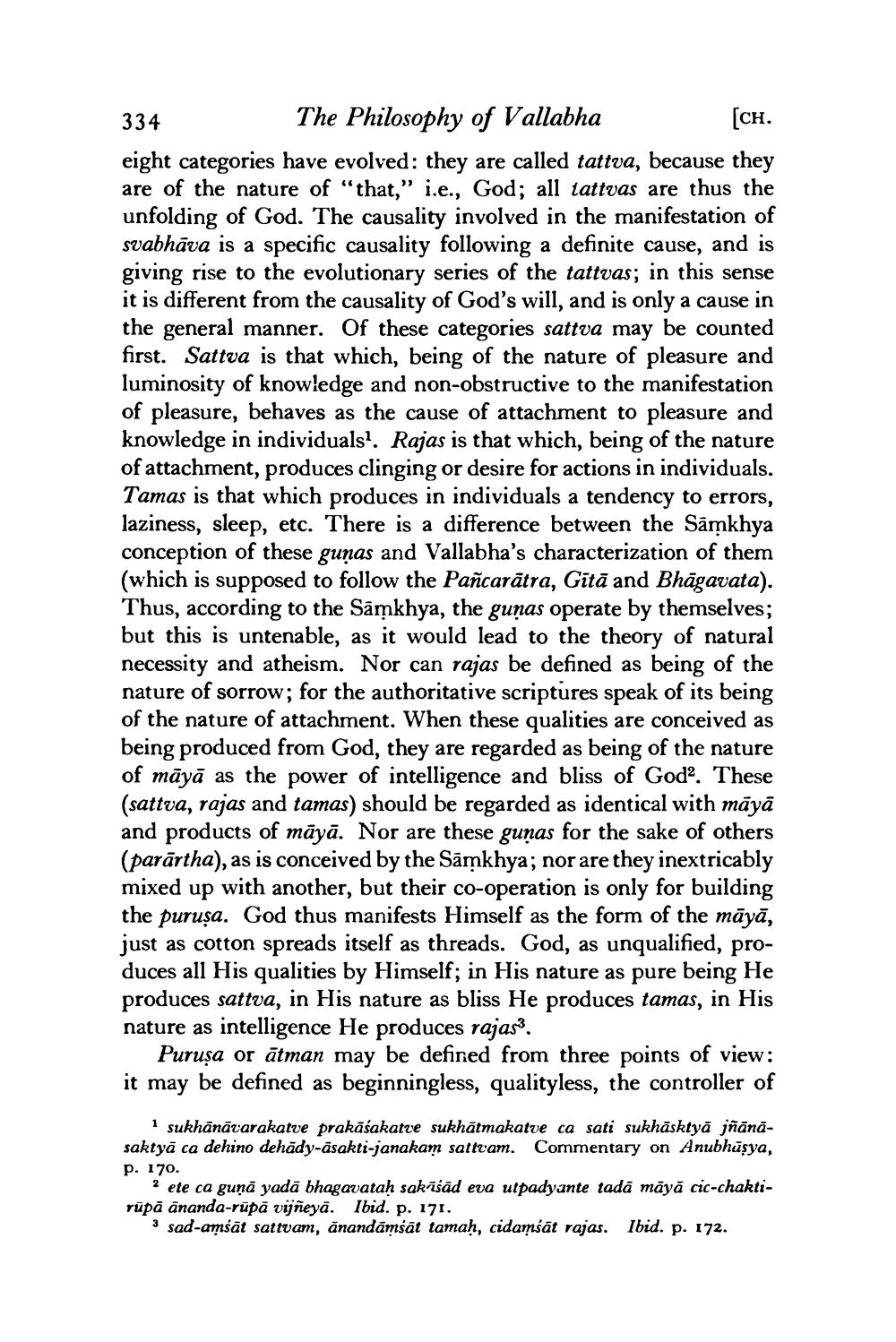________________
334 The Philosophy of Vallabha
[CH. eight categories have evolved: they are called tattva, because they are of the nature of "that," i.e., God; all tattvas are thus the unfolding of God. The causality involved in the manifestation of svabhāva is a specific causality following a definite cause, and is giving rise to the evolutionary series of the tattvas; in this sense it is different from the causality of God's will, and is only a cause in the general manner. Of these categories sattva may be counted first. Sattva is that which, being of the nature of pleasure and luminosity of knowledge and non-obstructive to the manifestation of pleasure, behaves as the cause of attachment to pleasure and knowledge in individuals?. Rajas is that which, being of the nature of attachment, produces clinging or desire for actions in individuals. Tamas is that which produces in individuals a tendency to errors, laziness, sleep, etc. There is a difference between the Sámkhya conception of these gunas and Vallabha's characterization of them (which is supposed to follow the Pañcarátra, Gitā and Bhāgavata). Thus, according to the Sāmkhya, the gunas operate by themselves; but this is untenable, as it would lead to the theory of natu necessity and atheism. Nor can rajas be defined as being of the nature of sorrow; for the authoritative scriptures speak of its being of the nature of attachment. When these qualities are conceived as being produced from God, they are regarded as being of the nature of māyā as the power of intelligence and bliss of God. These (sattva, rajas and tamas) should be regarded as identical with māyā and products of māyā. Nor are these gunas for the sake of others (parārtha), as is conceived by the Sāmkhya; nor are they inextricably mixed up with another, but their co-operation is only for building the puruşa. God thus manifests Himself as the form of the māyā, just as cotton spreads itself as threads. God, as unqualified, produces all His qualities by Himself; in His nature as pure being He produces sattva, in His nature as bliss He produces tamas, in His nature as intelligence He produces rajas.
Puruşa or ātman may be defined from three points of view: it may be defined as beginningless, qualityless, the controller of
sukhānāvarakatve prakāśakat e sukhātmakatve ca sati sukhāsktyā jñānāsaktyā ca dehino dehädy-āsakti-janakam sattvam. Commentary on Anubhusya, p. 170.
? ete ca guna yadā bhagavatah sakāśād eva utpadyante tada māyā cic-chaktirūpā ānanda-rūpā vijñeyā. Ibid. p. 171.
> sad-amśāt sattvam, anandāmśāt tamaḥ, cidamśāt rajas. Ibid. p. 172.




